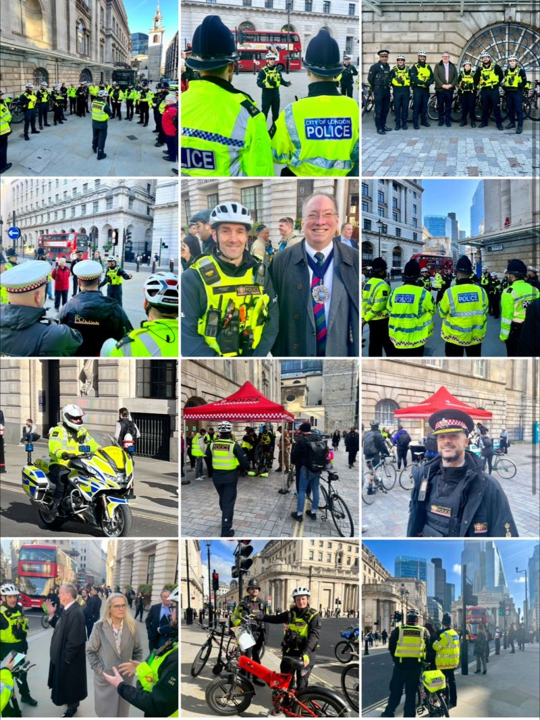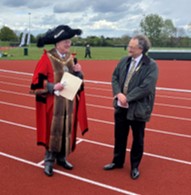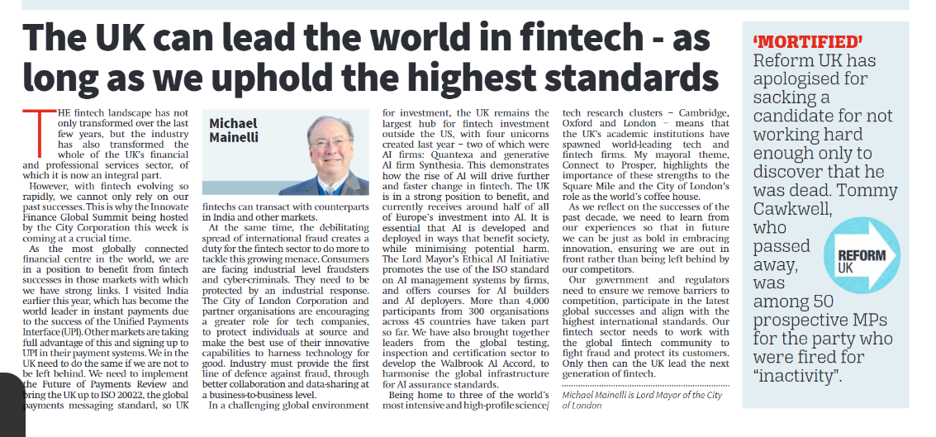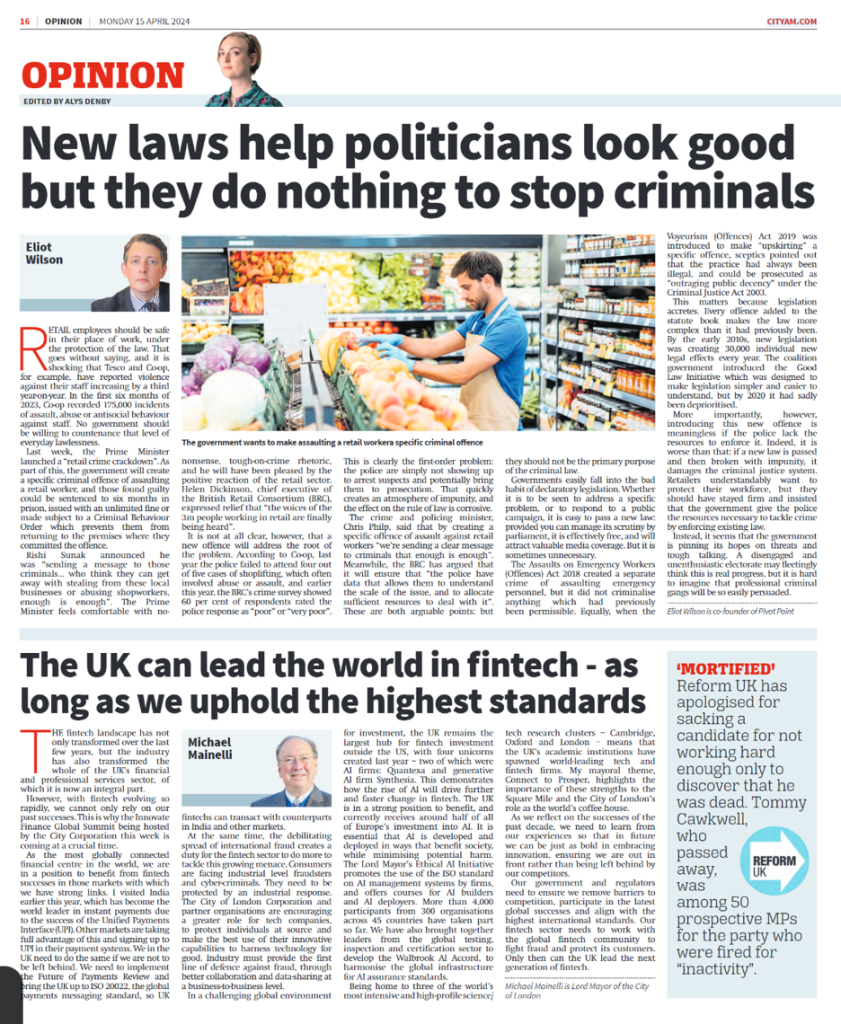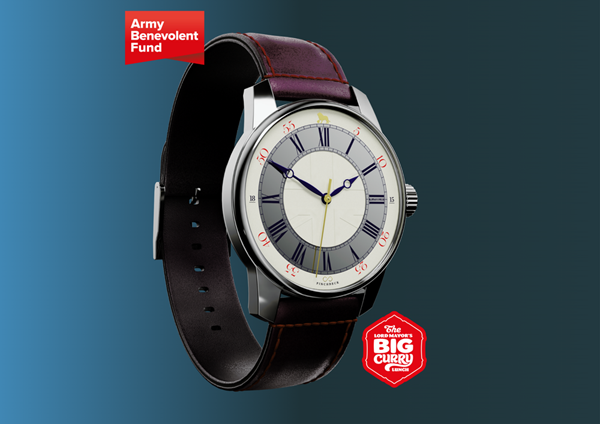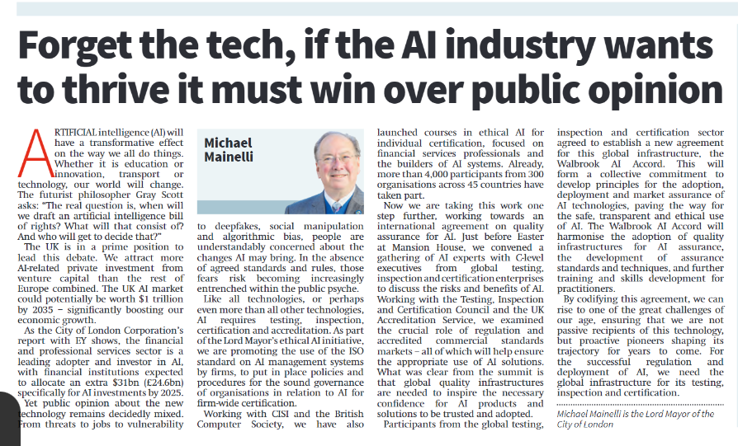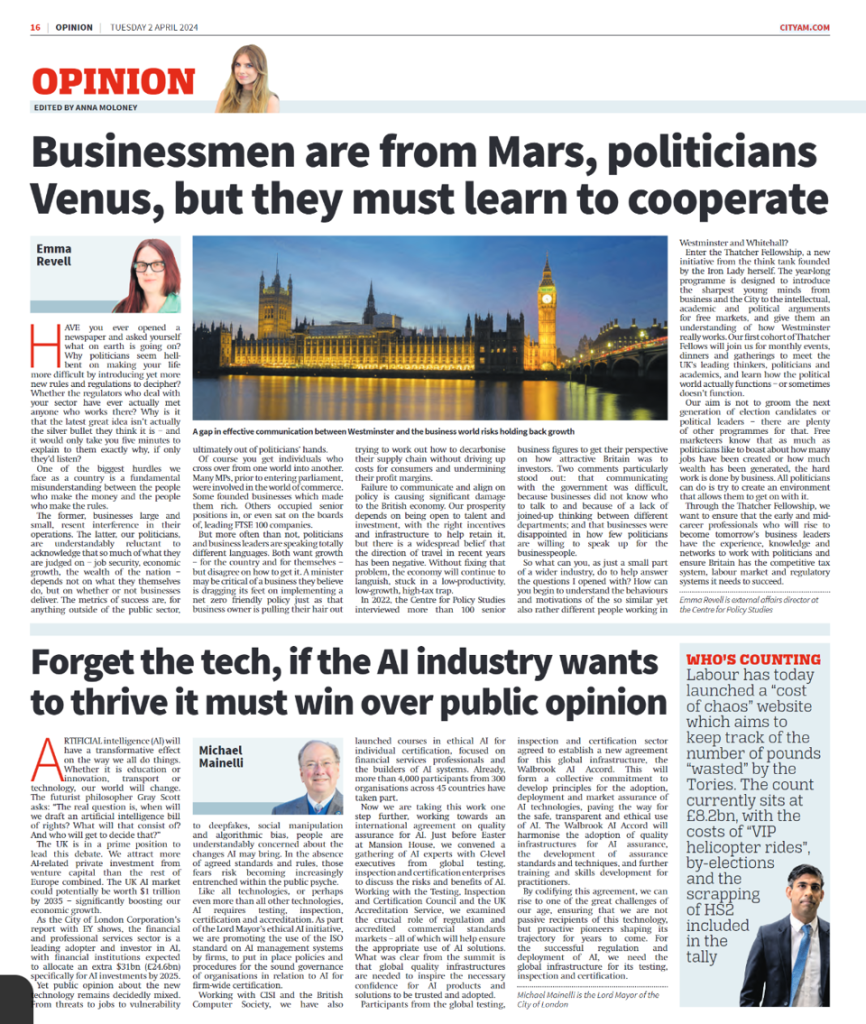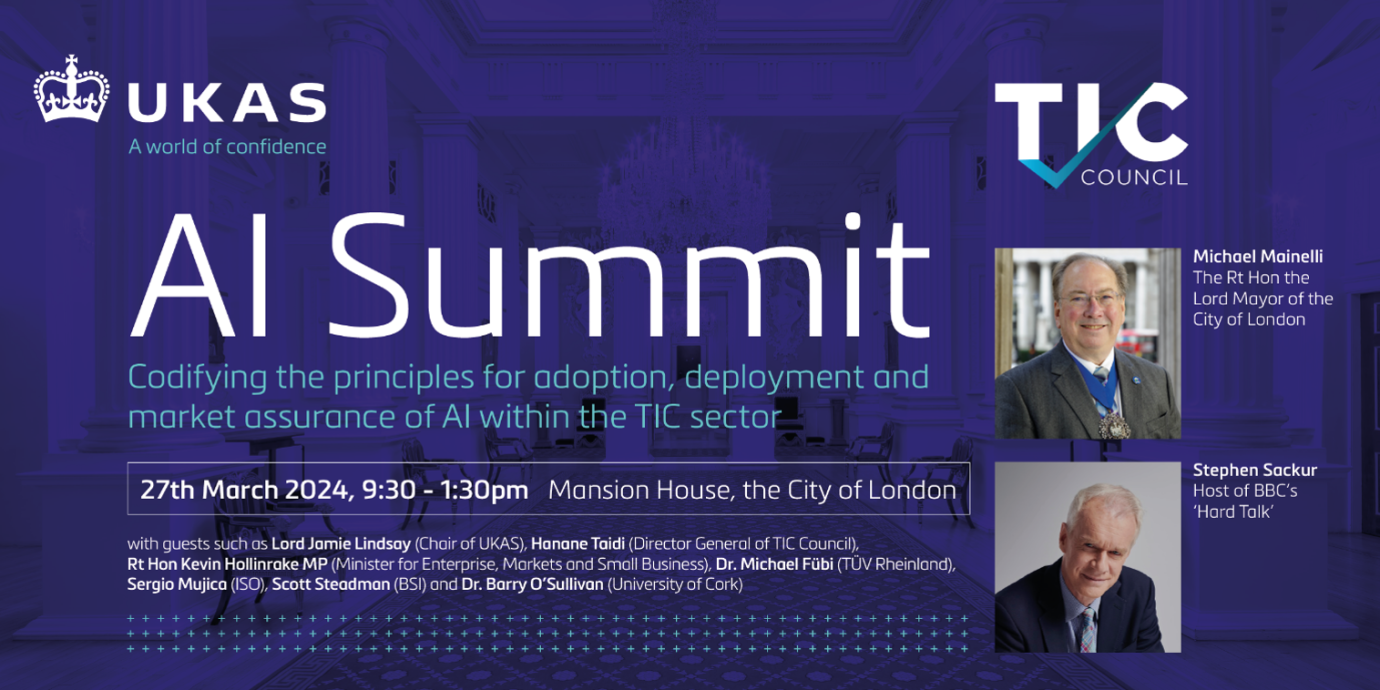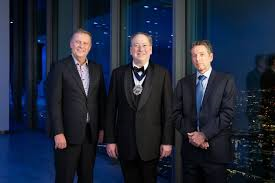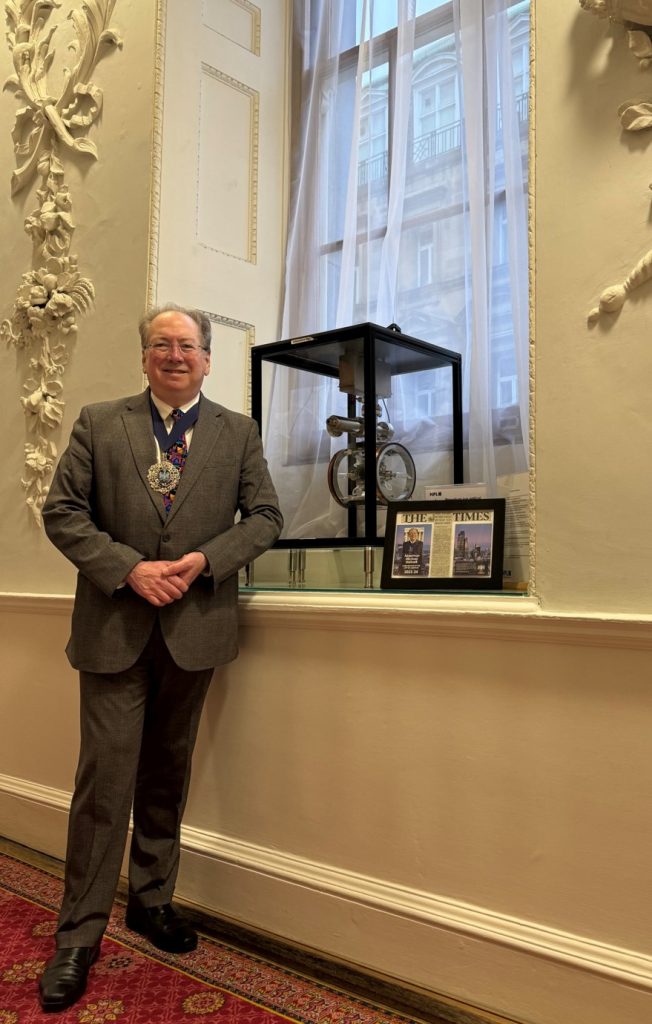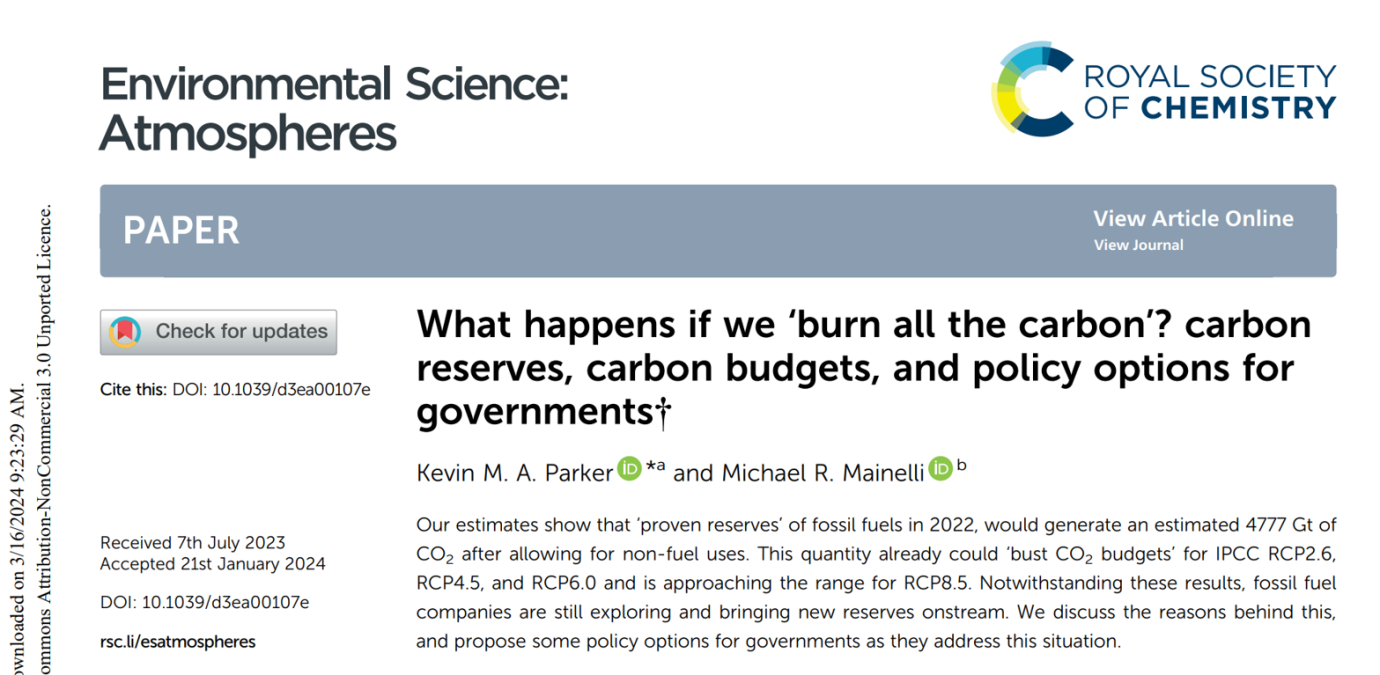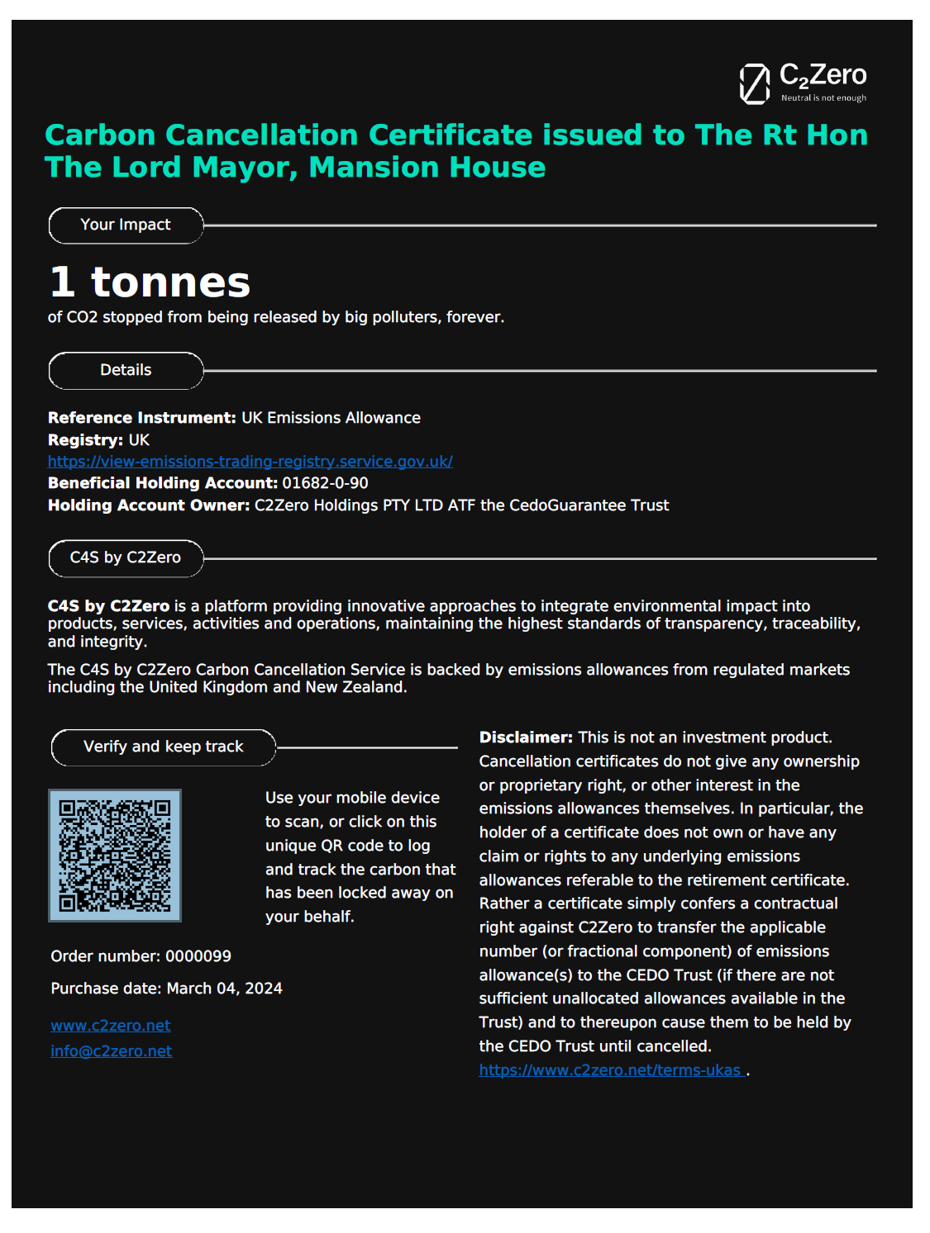Sadly, as a cyclist myself, the anti-social behaviour of many London cyclists is becoming socialised. Thus we had an enforcement morning today from 08:00 to 10:00 at Bank with the following resources:
- City of London Police Cycle Team (1 sergeant & 7 constables)
- Neighbourhood Policing officers (NHP) and crime prevention stand
- Road Policing officers (with vehicle and solo motorcycle)
- Lorry/HGV for an Exchanging Places experience (sitting in a real state-of-the-art lorry cab to see what can’t be seen of the cyclists when driving)
- Cycle mechanic to carry out basic bicycle maintenance for commuters for free.
- London Fire Brigade – to explain dangers around e-bike battery storage.
- Corporation Road Safety Team
- Bike-register – security cycle marking for free (usually £20)
- Student officers positioned at junctions to pass on safety message to cyclists and explain why the roadshow is here and the benefits of attending
It was impressive to see squads of police trying to stop errant cyclists. My personal estimate is that far more than half ‘got away’, sometimes nonchalantly cycling round 50 or so cyclists and hi-vis officers at the King William Street lights, running those red lights, going up on pavements, cycling the wrong way down the street, and then evading waving police officers. There really is a problem.
Results? 129 cyclists were stopped and offered a ticket or attending a ‘road show’.
- 120 sent over and attended the road show – this was the main aim, so they were given option of ticket or attend road show
- 8 tickets (not bad considering all the police there and they had option of going to road show)
- 1 arrest (s24 PACE 19834 – as they refused to give details after contravening a red light)
- 7 e-bikes/e-scooters seized for destruction
- 44 bicycles security marked
- 200 plus key messages around cycle safety and crime prevention
Sadly, during the morning, just outside Bank, a woman was run over by an unregulated scooter and put into intensive care.
All partners that attended were pleased with the event, getting their own key messages out and thanked us for arranging the event. My sincere thanks to Deputy James Thomson (Chairman of the Police Committee), Commander Khan, and the entire Corporation and Police teams.
Media coverage:
https://www.standard.co.uk/news/crime/cyclists-fined-city-police-london-bank-junction-b1152140.html
https://road.cc/content/news/almost-1000-cyclists-fined-jumping-red-lights-307887
https://www.cyclingweekly.com/news/are-cyclists-who-jump-red-lights-really-the-problem

